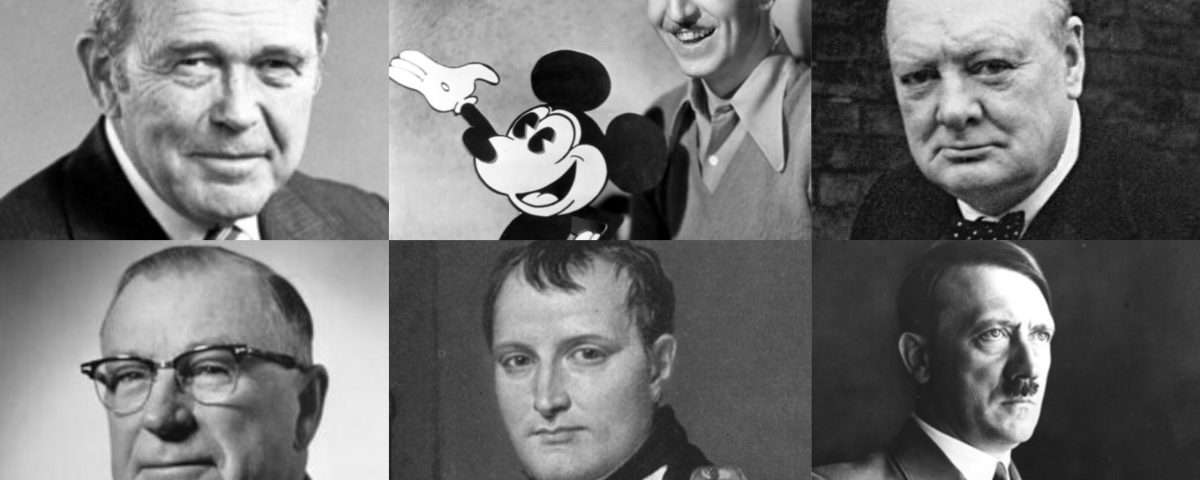Do Great Leaders Need Charisma?

The Power of Determination In Leadership
June 25, 2020
I’m Still Here – Are You?
November 9, 2020Do great leaders need charisma?
According to research, charisma is the number one characteristic of an effective leader and gets the most attention. (Hoffman et al., 2011; Northouse, 2020)
Why is that?
Three reasons why charismatic leaders might be more effective:
1.Charismatic leaders are great communicators.
Experts argue that charismatic leaders are the most influential leaders because ratings of leadership effectiveness depend on followers’ perspective.
The reason for that might be that charismatic leaders can inspire and engage with others.
They communicate visionary content such as using stories, metaphors, and analogies and can mobilise people towards a vision.
Charismatic leaders are empathic and, therefore, able to connect well with followers to lead successfully.
2. Charismatic leaders are easy to follow.
They have “strong convictions,” they are “determined, self-confident and emotionally expressive” and “they generate extraordinary performance in the followers” who “want to identify with the leaders as persons”.
They emphasize with their followers and are able to “stir enthusiasm” through the language they use. (Bass, 2008)
3. Charismatic leaders are change catalysts.
They are particularly beneficial in times of change or crisis in an organisation, and generally more effective than non-charismatic leaders.
Therefore, charismatic leaders have unique strengths which generally do contribute to the success of companies.
However, putting a charismatic leader in charge is not the only predictor of success and might even lead to the opposite.
Despite the prime position of charisma in leadership theory, we should not misunderstand that charisma is the exclusive characteristic in order to be successful as a leader.
As mentioned earlier, having a charismatic leader who is able to compel his followers by casting vision and relating to them individually is a strong predictor of success in an organisation.
Three reasons why charisma does not necessarily win:
1.The common characteristic of successful leaders is that they focus on the company’s success and not on their own.
Collins and Porras conclude in their book ‘Built To Last’ (1995) that there are plenty of visionary leaders who are not charismatic.
They argue that people like Sam Walton and Walt Disney, although tremendous charismatic leaders, were not merely successful because of their charisma but because of their mentality to build something bigger than themselves, and so did other chief executives whose names might not be familiar.
Have you heard of William McKnight? Me neither, the general manager and chair of 3M for 52 years.
Have you heard of Bill Hewlett? Probably not, but HP? For sure. Collins and Porras describe him as a “friendly, no-nonsense, matter-of-fact, down-to-earth farmer from Iowa”.
And apparently, “Procter and Gamble were stiff, prim, proper, and reserved – even deadpan”.
We might not know these leaders for their impressive personalities but for their achievement of building organisations that make history beyond their life-span.
They created organisations that “evolve and change on their own” by putting the right people in place, “people who build an organisation” (Collins & Porras, 1995)
2. Visionary organisations have a set of principles and values that are not effective if only the leader carries them.
In another article, Collin and Porras (2008) discuss the “guiding philosophy” imprinted in the organisation by its early leaders and which then needs to be maintained by the following generations.
Remember Walt Disney? He died five years before Disney World opened in Florida in 1971, not to mention where Disney is at today.
3. Leaders need more than charisma.
Charismatic leaders can be overbearing, narcissistic and unrealistic visionary, which is generally destructive for an organisation.
“Consistently pursuing a risky and unrealistic vision”, which is also an indicator of narcissistic leadership, “is a major reason for serious performance declines in organisations with a charismatic leader.” (Maccoby, 2001)
A key indicator here is that followers need to be able to trust their leaders, which does not depend on the personality style of the leader but on the integrity demonstrated over time.
Effective leaders have integrity.
Narcissists, for example, draw people in with their charisma but are generally highly destructive and not trustworthy.
Extremely negative proof of that are leaders like Hitler and Napoleon.
In conclusion, both arguments for and against the myth that successful visionary organisations require charismatic leaders are valid.
On the one hand, research clearly proves that charisma is a strong predictor of effective leadership and, therefore, of successful organisations.
Charismatic leaders seem to bring the best out of their followers and are generally powerful at what they do.
However, as long as their focus is on themselves, the organisation might only benefit in their lifetime.
Therefore, visionary organisations need great leaders who have the intention to build an organisation that outlasts them and is not just dependent on their charisma.
Find out more about key leadership traits in my recent blog posts: Leaders Are Learners and the leader’s highlight on Michelle Obama who we can learn from.
Happy Thursday!
Désirée
P.S. If you want to be a more effective leader, just contact me or book your strategy session here.


